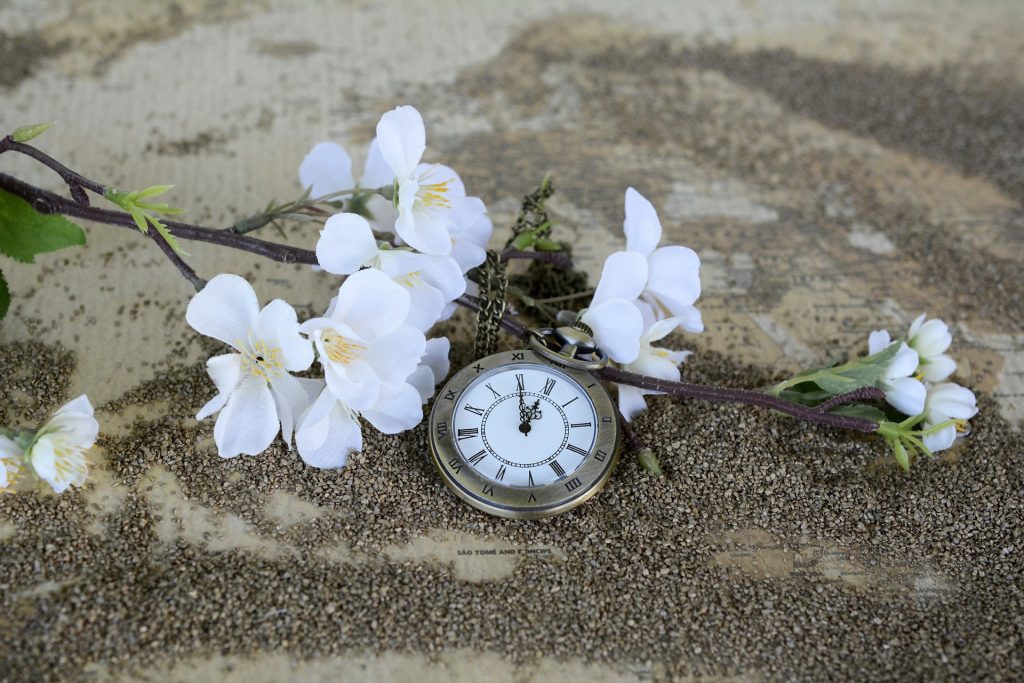Lazarus
Name days and name names of Lazarovden:
Lazar, Lazarinka, Lazarina, Lazo, Lazarka, Lalka, Lalko, Lalo, Lala, Lalio, Lalyu
Lazarus Day is the penultimate Saturday before Easter, and Palm Sunday is after it – on Sunday. These two holidays have a rich folk ritual, they are also celebrated as name days.
Lazarus Day customs
According to the Bulgarian folk tradition, Lazarovden or "Lazaritsa", "Lazarova Saturday" is a celebration of the fields, pastures and forests, but also a celebration of girls who, after being Lazarus, can publicly groom, dress and behave in such a way that the bachelors like them , to have a lover, to get married. The day is also called Lazarova Saturday, Lazaritsa, Lazarus. Three rites are associated with it - lazaration, choosing a bridegroom and boenek. All three are connected with the transition to virginity, with love and domestication.
On this day, groups of six to seven girls aged 10 to 16, dressed in festive clothes or bridal costumes and adorned with garlands and wristbands, go round the homes of the village singing ritual songs for each member of the family, praising children, old, young, maidens, bachelors, brides, as well as shepherds, herdsmen, grooms. The hosts give them eggs and money. It is believed that the house in which they entered and sang lazarkas will be blessed throughout the year. Lazarkas roam the forests, rivers and meadows. They enter the fields with a song and wish for a rich harvest of the greening wheat.
The Lazarus songs are accompanied by ritual people and handmaidens. If by chance the lazarkas miss a house, then, according to popular belief, misfortune will befall their owners. This usually happens by accident. But sometimes, and even in very rare cases, this is allowed on purpose. The Lazarites they do not visit the homes of socially rejected people
The Orthodox Church observes the church holiday Lazarovden, which has a rolling date and is always on the penultimate Saturday before Easter. In the calendar of the Christian church, the holiday is connected with one of the most exciting Gospel stories - the resurrection of Lazarus, who lived in the city of Bethany, near Jerusalem. According to the gospel, when the Savior was in the lands beyond the Jordan River, Lazarus fell ill and died. When the messiah returns, he resurrects the deceased on the fourth day of his burial as a sign of gratitude for his hospitality.
According to medieval manuscripts, Lazarus lived another 30 years in strict fasting and abstinence and was proclaimed the first bishop of the city of Kition on the island of Cyprus. On Lazarov Day, the church celebrates with a festive liturgy the resurrection of Lazarus, as well as the memory of the holy martyr Lazarus Bulgarian, tortured and killed on April 23, 1802.
Lazarus Day 2019 – April 20, 2019
Lazarus Day 2020 – April 11, 2020
Lazarus Day 2021 – April 24, 2021
Lazarus Day 2022 – April 16, 2022
Lazarus Day 2023 – April 8, 2023
Lazarus Day 2024 – April 27, 2024
Lazarus Day 2025 – April 12, 2025
Lazarus Day 2026 – April 4, 2026
Today is the Annunciation! What are the traditions and customs of the holiday.
Palm Sunday (Vrabnitsa) – April 21, 2019
Flower Sunday is celebrated on the Sunday after Lazarus Day.
Name days and name names of Lazarovden:
Name Day celebrate all those who have names derived from names of plants, trees: Primrose, Peony, Violeta, Willow, Verban, Verbinka, Gergin(a), Grozdan(k)a, Dahlia, Dafina, Delia, Delyan(a), Dilyan Clover Jasmine .
Palm Sunday customs:
The most popular custom in celebrating Palm Sunday is related to the willow branches. Christ enters Jerusalem riding on a donkey, and the people welcome him with palm branches that spread on the ground at his feet and with joyful shouts of "Hosanna". On this day, a prayer is held in the Bulgarian Orthodox Church and willow branches are consecrated, which replace the palm branches (hence the other name of Tsvetnitsa - Vrabnitsa). On the feast itself, after the solemn Liturgy, the priests distribute them to the faithful. The consecration takes place at a night vigil on Saturday evening. Christians take them into their homes for the health of the healthy and for the healing of the sick. It is believed that the consecrated willow protects from evil, and therefore it is placed on the home icon, and a willow wreath is hung on the front door, which remain until the next year.
In the Bulgarian tradition, there are different ones willow branch rites, but they are all related to the belief in their healing power. In case of a difficult birth, the grandmothers pour water over the willow crown three times and give it to the woman in labor to drink, or they set fire to the willow branches and put her to death with them.
With the fresh willow wreaths, they decorate the horns of the livestock, and if an animal gets sick, they smoke it with the smoke from the dried wreaths. It was believed that if a child was blessed, their face should be washed with water in which a church willow had been dipped from Flower Sunday – “to break the lessons". When a hail cloud sets in, they take the willow wreath outside or set it on fire to ward off the danger.
In many areas with a willow consecrated in the church, they wrap it around their waist so that it doesn't hurt, or when they have such pain they put a wreath of willow branches on their waist. These wreaths are also put in at night so that there are no worms in the flour.
The people also call Tsvetnitsa Tsvetna Sunday, Vaya, Kuklenden. The maidens who performed the lazaration the day before gather at the river (the well or the fountain), each carrying a wreath and kneaded pre-ritualized bread that looks like a human figure (that's why they are called "doll") and perform the custom of "kumichene". Pieces of the bread and the wreaths are arranged on a board and let flow. The girl whose crown comes out first is chosen as the "maid of honor" - it is believed that she will marry first and leads the hen party to her house. Maidens "beef", i.e. they are silent before the lady until Easter, when they go with red eggs to her home.
Evening of Flower Sunday the bachelorettes and bachelorettes play for the last time the Lazarus dance.
The festive table for a flower garden:
Although it is Lent, the Orthodox Church allows fish to be served on the festive table on this day.
Palm Sunday 2019 – April 20, 2019
Palm Sunday 2020 – April 11, 2020
Palm Sunday 2021 – April 25, 2021
Palm Sunday 2022 – April 17, 2022
Palm Sunday 2023 – April 9, 2023
Palm Sunday 2024 – April 28, 2024
Palm Sunday 2025 – April 13, 2025
Palm Sunday 2026 – April 5, 2026
Look more: 10 ways to feel happier right away
Read also: The meaning of life. The soul comes to Earth for six main reasons






Facebook Comments